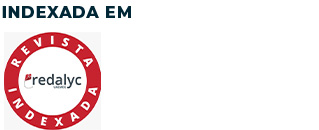Participatory methodology for strategic planning of the rural communities of José da Penha/RN
Keywords:
Strategic planning, Family farming, José da Penha/RNAbstract
This work is a study on strategic planning in family agriculture, with the objective of investigating the potential forces and the different problems that interfere in the process of development of family agriculture in the rural communities of José da Penha-RN. To do so, the methodology consists, initially, in the literature review seeking the theoretical support in authors such as, Buarque (2008), Mello (2007), Pedroso (2009), Silva (2006), among others. In order to identify the potentialities and problems of the rural communities of José da Penha/RN, the Participatory Rapid Diagnosis (PRD) was carried out through workshops with 22 social subjects, representing the institutions nongovernmental organizations and local public authorities. The data were organized and systematized through the Strengths-Opportunities-Weaknesses-Threats (SOWT) model, which presented the socioeconomic and environmental aspects that are directly related to the planning process of the rural communities in the municipality. The results obtained showed that the participatory planning process is essential for municipal decision-making. Finally, the socioeconomic and environmental model S-O-W-T was constructed, taking into account the results of the workshops. Thus, we can see that there are many challenges for family agriculture, and that the use of these methodologies can become a planning instrument for managers of different organizations, governmental or not, in the municipality of José da Penha/RN, thinking about policies of development based on local sustainability.
Downloads
References
ALLEBRANDT, S. L. et al. Planejamento estratégico local. Rio Grande do Sul: Editora Unijuí, 2009. Disponível em <http://bibliodigital.unijui.edu.br:8080/xmlui/bitstream/handle/123456789/194/Planejamento%20Estrat%C3%A9gico%20Local.pdf?sequence=1 >. Acesso em 17 ago. 2018.
ALMEIDA, J. A problemática do desenvolvimento sustentável. In BECKER, Dinizar Fermiano (org). Desenvolvimento Sustentável: necessidades e/ou possibilidades? 4. ed. Santa Cruz do Sul: EDUNISC, 2002. Cap. 1, p. 21-29.
ASSAD, M. L. L; ALMEIDA, J. Agricultura e sustentabilidade – Contexto, desafios e cenários. Ciência e Ambiente, n. 29, 2004.
BELLEN, H. M.V. Indicadores de sustentabilidade. 2 ed. Rio de Janeiro: FGV, 2006. P.256 p.
BINSWANGER, H. C. Fazendo a sustentabilidade funcionar. In: CAVALCANTE, Clóvis (org.). Meio Ambiente, desenvolvimento sustentável e políticas públicas. 2. ed. São Paulo: Cortez; Recife: Fundação Joaquim Nabuco, 1998. Cap. 2, p. 29-40.
BUARQUE, S. C. Construindo o desenvolvimento sustentável. 2. ed. Rio de Janeiro: Garamound, 2008.
BRASIL. Lei nº 11.326, de 24 de julho de 2006. Disponível em: <http://camara.gov.br/proposicoesWeb/prop_mostrarintgra;jrssesionid=5015B99FF74865A2F3CC953B71288.node?Codteor=83754&Fileame=LegislacaoCitada+PL+54/2011>. Acesso em 11 agosto 2018.
BRASIL. Ministério do Desenvolvimento Agrário – SAF/PRONAF. Crédito rural do PRONAF. Disponível em: <http://www.mda.gov.br/>. Acesso em 03 agosto 2018.
FLICK, U. Uma introdução a pesquisa qualitativa. Tad. Sandra Netz. 2 ed. Porta Alegre. Bookman, 2004.
GLIESSMAN, S. R. Agroecologia: processos ecológicos em agricultura sustentável. Porto Alegre: Ed. Universidade/UFRGS, 2000.
GASTAL, M. L. A representação social do desenvolvimento rural sustentável construída por assentados: o caso do projeto Unaí. 232f. Tese (Doutorado em Desenvolvimento Sustentável) Centro de Desenvolvimento Sustentável, Universidade de Brasília, Brasília, 2008.
IBGE. Canais cidades@: Rio Grande do Norte, José da Penha. Disponível em: <http://www.ibge.gov.br/cidadesat/topwindow.htm1>. Acesso em: 23 ago. 2018.
IDEMA – Instituto de Desenvolvimento Sustentável e Meio Ambiente do Rio Grande do Norte: Anuário Estatístico, 2013: Disponível em: <http://www.idema.rn.gov/contentproducao/idema/socio_economica/arquivos/anuario%2013pdf >. Acesso em: 10 jan. 2018.
IDEMA – Instituto de Desenvolvimento Sustentável e Meio Ambiente do Rio Grande do Norte: Perfil do seu município – José da Penha. Disponível em: <http://www.idema.rn.gov.br/contentproducao/aplicacao/idema/socio_economicos/arquivos/Perfil%202008/Jose%20da%20Penha.pdf>. Acesso em: 23 ago. 2018.
LAGES, V. N. Agriculura familiar e desenvolvimento sustentável: superando obstaculos. In: GUEDES, V. G. F.;
TAVARES, E. D. (Org). Agricultura familiar e o desafio da sustentabilidade. Rio de Janeiro: Oficina Social, Centro de Tecnologia, Trabalho e Cidadania, 2001. Cap 4, p. 42-56.
MELLO, R. L. Agricultura familiar sustentabilidade social e ambiental, 2007. Disponível em: <http://agro.unitau.br:8080/dspace/handle/2315/137 >. Acesso em: 02 ago. 2017.
MENDES, B. V. Biodiversidade e desenvolvimento sustentável do semiárido. Fortaleza: SEMACE, 1997.
PEDROSO, M. T. C. Agricultura Familiar Sustentável: Conceitos, experiência e lições. 111f. Dissertação (Mestrado em Desenvolvimento Sustentável) Centro de Desenvolvimento Sustentável, Universidade de Brasília, Brasília, 2009.
PRONAF. Consórcios Intermunicipais. Desenvolvido pela Secretaria de Agricultura Familiar do Ministério do Desenvolvimento Agrário, 2002. Disponível em Acesso em 17 mar. 2018.
SACHS, I. Desenvolvimento includente, sustentável sustentado. Rio de Janeiro: Garamond, 2004.
SOUZA, M. M. O. A utilização de metodologias de diagnósticos e planejamento participativo em assentamentos rurais: o diagnostico rural participativo (DRP). In: Em Extensão, Uberlândia, v. 8, n. 1, p. 34 – 47, jan./jul. 2009. Disponivel em . Acesso em: 11 mar. 2018.
SILVA, R. M. A. da. Entre o combate í seca e a convivência com o Semi-írido: transições paradigmáticas e sustentabilidade do desenvolvimento. Tese (Doutorado em Desenvolvimento Sustentável) – UNB, Brasília, 2006. 298 p.
TAVARES, E. D. Da agricultura moderna í agroecológica: análise da sustentabilidade de sistemas agrícolas familiares. Fortaleza: Banco do Nordeste do Brasil; EMBRAPA, 2009, 246 p.
VEIGA, J. E. da. Desenvolvimento Sustentável: O desafio do século XXI. 3 ed. Rio de Janeiro: Garamond, 2008.
WANDERLEY, M. de N. B. O mundo rural como espaço de vida: reflexões sobre a propriedade da terra, agricultura familiar e ruralidade. Porto Alegre: Editora da UFRJ, 2009.
Downloads
Published
How to Cite
Issue
Section
License
Authors who submit their manuscripts to Geotemas declare that the work is an original article and has not been submitted for publication, in full or in part, in another national or international scientific journal or in another circulation vehicle. The authors also declare that they agree with the transfer of the copyright of the referred article to the magazine Geotemas (University of the State of Rio Grande do Norte), allowing for later publications, as long as the source of its publication is assured. Finally, they assume public responsibility for the article, being aware that any charges arising from a claim by third parties regarding the authorship of the work may apply to them.





















